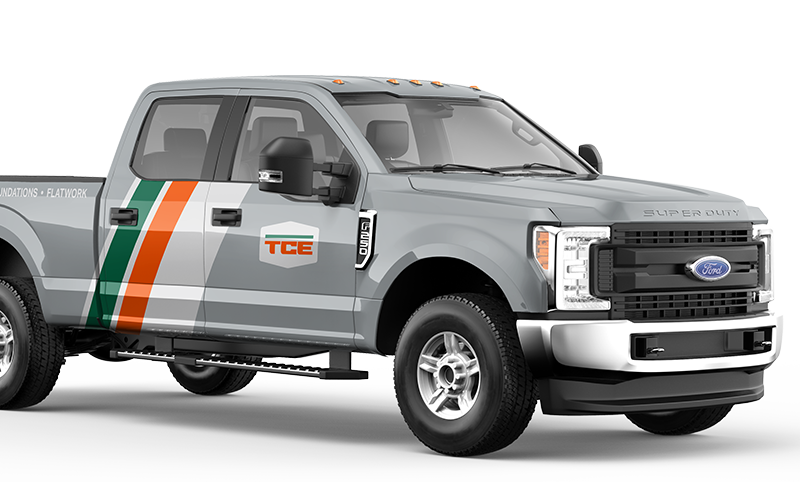How Long Does It Take to Rank on Google?

“How long does it take to rank on Google?” It’s a common question among business owners when creating their new website. When you’re investing money to market your business, you want to know how long it’ll take to start seeing results. Unfortunately, there is no black and white answer.
Multiple studies have been done detailing how fast it took for certain website pages to rank (1). Across the board, results are different for every company. If you really REALLY want a hard number, most studies show that it takes between 3 and 6 months to rank on Google’s Top 10.
But that’s not always the case. It depends on how long your website has been around, how much traffic you get, how many people are sharing your content, what your “Domain Authority” is and so much more (2).
Long-Term vs Short-Term
Ranking on Google is similar to how we achieve other worthwhile goals. Think of it this way. Sure you could employ slightly gimmicky tactics to get customers in the door quickly (say keyword stuffing or buying inbound links) but once they realize there really isn’t any worthwhile content in your store (or on your site) those customers will quickly trickle away.
On the other hand, if you work hard at providing great customer service, build a quality brand and offer exceptional content (be that physical or informational,) gradually your business will gain traction, gathering loyal customers and business (and in the world of the interwebs, ranking on Google’s Top 10.) Simply put, ranking on Google is a matter of hard work, dedication and yes, in some cases, money.
The Hard Numbers
"Only 5.7% of all newly published pages will get to Google Top 10 within a year" and of those 5.7% websites that ranked within a year, it typically took them 61 to 182 days to rank (1). If you’re aiming to rank for a high-volume keyword (say something simple, like “eco-friendly” or “robotics”) then you’re chances of ranking only decrease. Only 0.3% of those 5.7% newly published pages rank Top 10 for high-ranking keywords.
The vast majority of newly published pages don’t make it to the Google Top 10 within a year. Those in the top ten have typically been there for 2+ years, and those at number one are typically 3 years old (1).
“Thanks for the good news,” you say. We hear you. All this information doesn’t exactly make anyone happy. But there is some light at the end of the tunnel.
First things first though—you need to know how Google works.
How Google Ranks
Alright, so you don’t need to know exactly how Google works, but you do need to understand how Google ranks to get an idea of how you can boost your website's page ranking.
Here’s a short explanation. Google bots or spiders “crawl” millions of web pages collecting data and indexing it on the Google index (the Google index is what we search when we type a query into Google’s search bar) (3). Bots look for keywords and phrases and index them according to a ranking algorithm. Part of the reason why SEO (Search Engine Optimization) can be difficult is because this algorithm constantly changes.
Now, Google’s algorithm doesn’t change often just to irritate website owners. Google changes its algorithm constantly in an effort to make the search experience as easy and intuitive as possible for internet users. The main goal of Google is to feed you the most relevant answer based on your query.
Google’s algorithm looks at different ranking factors, which includes everything from keywords, title tags, alt tags and more. In fact, there are 200 ranking factors that Google uses to rank pages (4). Let’s wade through those ranking factors for a second. Some are more important than others, but keep in mind that, again, Google’s algorithm changes, so the importance of these factors many change in the not so distant future
Some of the these more important factors include:
- The age and authority of the domain (how long the website has been around and the quality of links)
- Keyword competition (how much competition there is for certain keywords)
- Content (this includes the length of your content, particularly your blog or article posts, timelessness of your content and its originality)
- And your website’s overall cleanliness (aka is your code working correctly, do your links work, are your title tags clear, etc.) (5)
What You Can Do
So now that you get the gist of how Google ranks pages and some of the more important ranking factors, you can start to take steps towards improving the ranking of your website. As mentioned above, Google’s algorithm changes, but you can still count on these actions improving the overall quality of your website.
First thing first, practice good SEO.
- Use titles tags, alt tags, and keywords appropriately.
- Don’t “keyword stuff,” meaning don’t stuff your tags and website content full of relating keywords, hoping that Google will recognize multiple keywords multiple times and rank your website faster. Nowadays, that’s a big no-no, and Google will ding you for it before ranking you higher. Good SEO is a part of creating a quality website, a website that provides useful, clear content without confusing your visitors.
- The most important way to create a quality website is by creating quality content.
- Not all content is created equal though. One type of content is often referred to as “timely content;” content relating to current events or topics. This type of content happens to rank faster than content that is simply new (6). However, while “timely content” does tend to rank faster, it fades just as fast.
- Content that is relevant at any time, or “timeless,” is slower to rank but maintains its authority (and rank) far longer than its timely counterpart. Overall, creating new articles and pages is a great way to expand your net and ability to rank (think of it as more keywords for Google to crawl.) Remember though, no spammy content—Google wants to rank those that have the most authority on a certain subject.
- Along with quality content, practice quality link building.
- Think of links as the way Google bots crawl from webpage to webpage. By creating quality links, Google can analyze the authority of your website faster based on what websites and content you link to and from (in simple terms.) You can create internal links by linking to your own web pages and content (i.e. linking to a services page from your blog post,) outbound links by linking to reputable sources and content, and most importantly, inbound links by linking from outside websites.
- Inbound links require hard work but are perhaps the most important key to getting your website to rank. These links point back to your website from other sites. Think in terms of a link from your guest article you published on an industry-related site, an online association you’re apart of, or review you left on a related product or service. These types of links tell Google your website is reputable and worth ranking highly.
- Lastly, niche, niche, niche.
- Being more specific with your keywords (say “PV USB solar charger” vs “solar charger”) gives you a better shot at ranking in Google’s Top 10. Your best bet at ranking faster is shooting for long-tail unique keyword phrases vs vague, short keywords.
- Think of it this way: You’re seen as a bigger authority on a subject when you write 20 articles about one topic vs when you write 20 articles about 20 different topics. In Google’s world of ranking, it’s much better to be an expert on a few, specific subjects than simply familiar with a hundred.
- Can’t think of where to begin with your content? Start with answering your customers’ most frequent concerns and questions (i.e. Best Uses for PV USB Solar Chargers, Best USB Solar Chargers on the Market, etc.)
Sometimes it’s a matter of ignoring Google.
While that may go against everything you’ve learned, focusing on improving your site (and ultimately your business) is really what’s going to make you “rank” in the long run. Building quality content, links, and niche knowledge and professionalism leads to a website and business that truly makes a sustainable difference in the world and in the lives of others. Sometimes we’re so entrenched in technology and how we can take advantage of it, we forget that the simple strategy of relating to our fellow human beings is best.
If you would like to take the guesswork out of your marketing decisions and get an immediate competitive advantage, grab a copy of our free Strategic Marketing Ebook.
If you are interested in learning more about our approach to the items discussed in this article, call (970) 744-3611 or send us an email so we can talk about what that would look like.
This article was originally published on InnovatioNews .
References
- https://ahrefs.com/blog/how-long-does-it-take-to-rank/
- https://moz.com/learn/seo/domain-authority
- https://support.google.com/webmasters/answer/182072?hl=en
- https://backlinko.com/google-ranking-factors
- https://searchenginewatch.com/2017/10/27/an-in-depth-guide-to-google-ranking-factors/
- https://www.getcredo.com/fresh-content-seo/


